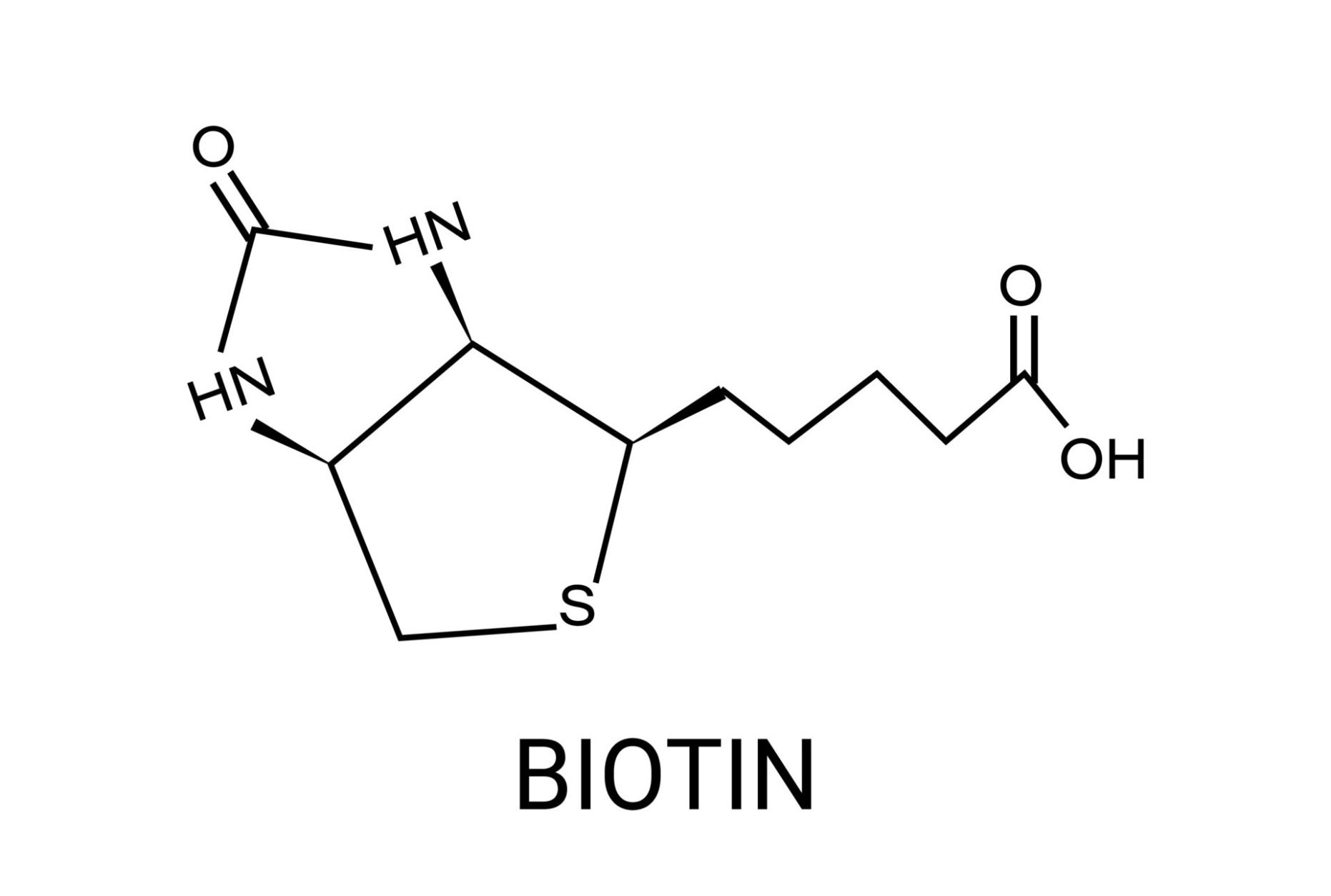Vitamin B7, also known as biotin, plays a key role in the metabolic processes of the human body, specifically in the synthesis of fatty acids, amino acids, and gluconeogenesis.
This nutrient is essential for maintaining the health of the skin, hair, and nervous system.
It is also necessary for the normal functioning of the nervous system and plays a role in genetic expression by regulating the activity of certain genes.
Biotin is involved in the synthesis of neurotransmitters, which may influence mood and overall psycho-emotional state.
Vitamin B7 is required for the synthesis of fatty acids and amino acids and helps in processes that convert food into energy.

Although biotin is produced by intestinal microflora, additional intake from food is important for maintaining optimal levels of this vitamin in the body.
Daily Requirement for Biotin
The daily requirement for biotin can vary depending on age, sex, and physiological condition of the body.
For adults, the recommended daily intake is approximately 30-100 mcg.
Pregnant and breastfeeding women may require more biotin, so it is important to consult with a doctor to determine individual needs.
Possible forms and their learnability
Nutrient forms are listed from best to worst:
Options on iHerb:
Options on iHerb:
Options on iHerb:
| Product | Price, $ |
|---|---|
| 37.08 | |
| 18.30 | |
| 17.07 | |
| 13.67 | |
| 24.51 |
Consequences of Vitamin B7 Deficiency
A deficiency of vitamin B7 can lead to a range of problems, particularly skin and neurological issues.
A lack of this nutrient can cause changes in skin condition, including dryness, redness, and rashes, especially around the nose and mouth.
Additionally, a deficiency of biotin can lead to hair loss (alopecia) and brittle nails.
Neurological symptoms such as depression, lethargy, hallucinations, and even problems with muscle coordination are not uncommon.
It is important to note that vitamin B7 deficiency is quite rare and is most often associated with nutrient absorption disorders.
Possible Risks of Excess Biotin Intake
Excessive intake of vitamin B7 usually does not cause side effects. This is due to the fact that biotin is a water-soluble vitamin, and any excess is typically excreted from the body in urine.
At present, there is no clearly established upper limit of biotin intake that could cause toxicity.
However, there are some reports suggesting that excessive biotin consumption may affect laboratory test results. This can lead to misdiagnosis of various conditions, including thyroid hormone deficiency and even heart diseases.
It is important for patients to inform their doctors about taking biotin supplements, especially if medical tests are to be conducted.
Sources of Vitamin B7 in the Diet
Sources of vitamin B7 available on a keto diet include various foods.
Plant sources. Biotin is found in foods such as:
Animal sources. Biotin can be found in:
It is important to note that biotin can be destroyed at high temperatures, so it is optimal to consume foods raw or lightly cooked.




































